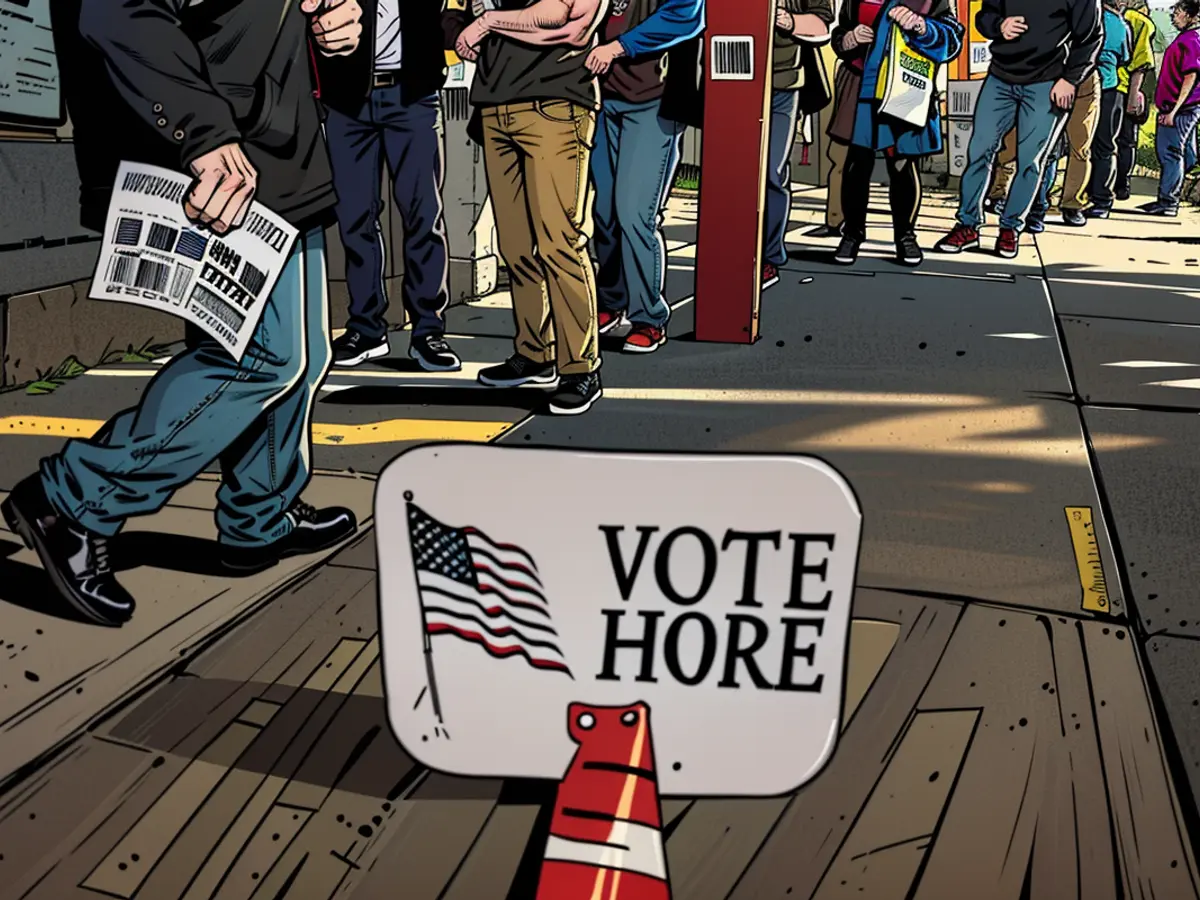Engaging in voting during working hours: Identify the states obligating employers to grant you time off for this purpose.
In numerous states, your workday calculation might incorporate the fact that by law, your employer is obligated to provide you with some time off to cast your vote, although under certain conditions.
Here's what you should be aware of:
Which states provide voting leave?
At present, there isn't a federal law compelling organizations to allow their employees time off to vote during work hours. However, 28 states and the District of Columbia have such regulations. North Dakota is an exception, as it only advocates but does not enforce employers to provide time off.
The states that legally require voting leave include: Alabama, Alaska, Arizona, Arkansas, California, Colorado, Georgia, Illinois, Iowa, Kansas, Kentucky, Maryland, Massachusetts, Minnesota, Missouri, Nebraska, Nevada, New Mexico, New York, Ohio, Oklahoma, South Dakota, Tennessee, Texas, Utah, West Virginia, Wisconsin, and Wyoming.
The rules and conditions differ by state, as outlined in a state-by-state guide for employers compiled by law firm Fisher Phillips. You can also explore specific state statutes on Justia.
How much time off can I take?
Typically, states with voting leave laws mandate that employers permit either one, two, or three hours off. Kentucky, on the other hand, allows up to four hours.
However, several states may impede such leave if the polls are open for a few consecutive hours before or after an employee's shift. For instance, in New York, if employees have four consecutive hours between the time the polls open and the beginning of their shift, or between the end of their shift and the time the polls close, they are considered to have enough time to vote outside of their work hours.
Is time off from work to vote considered paid leave?
Most states requiring employers to permit voting leave also require that this time be compensated. Some exceptions include Alabama, Arkansas, Georgia, Massachusetts, and North Dakota. In Wisconsin, employers may deduct time lost but cannot penalize employees in any other way.
Do I need to inform my employer of my plans?
In many states, yes. For instance, New York and California require at least two days' notice, while Oklahoma requires three days' notice. Additionally, in New York and California, employers are responsible for providing notice to employees before Election Day regarding their options. Most states, however, do not impose such a requirement on companies.
Do the laws apply to all employers in all industries?
While it seems to be the case in most instances, it is essential to verify your state's specific law. For example, in Massachusetts, the leave law only applies to "manufacturing, mechanical and mercantile establishments."
Do time-off laws apply to early voting as well?
Rules vary by state. If your state allows for early voting—and according to the National Conference of State Legislatures, 47 states do, along with the District of Columbia, Puerto Rico, the Virgin Islands, and Guam—voting leave rules may or may not apply. Some statutes explicitly state they apply to early voting, such as in Georgia and Washington, D.C., while Kentucky allows time off for in-person absentee voting.
Where can I find accurate information about my options to take time off to vote where I live?
Begin by contacting your human resources department at work to learn about your employer's voting policy, suggested Jeanette Senecal, senior director of mission impact at the League of Women Voters.
If you live in a state that has a time-off-to-vote law, remember that "state law is the floor, not the ceiling (of what is required), and your employer may have a more generous policy," Senecal said.
Even if you live in a state without a voting leave law, your company may voluntarily permit time during working hours to vote.
You can also find a state-by-state breakdown on various voting issues—including time-off laws, polling hours, rules about absentee ballots, and how to make a plan to vote—at Vote411.org.
If you have further questions regarding time-off laws or any other voting issues, Senecal suggests contacting the chief election officials where you live. That may be the state board of elections or the secretary of state's office. They should have essential information on voting rights and rules.
In some businesses, understanding the voting leave policies is crucial, especially if you live in states like Alabama, Alaska, or Arizona, where employers are legally required to provide time off for voting. Employers in these states should follow the state-by-state guide for employers to ensure compliance with the voting leave laws.
Furthermore, many states, such as Kentucky and New York, stipulate specific conditions regarding the length and timing of this leave. Therefore, businesses should familiarize themselves with these details to avoid any potential conflicts or issues related to voting leave.








